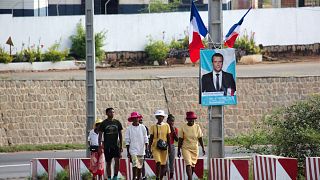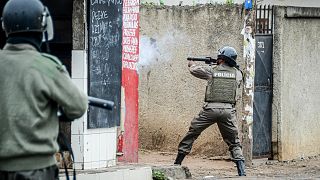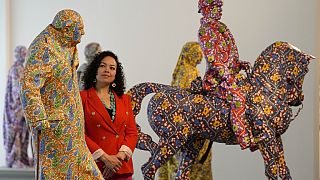Madagascar
The island of Madagascar has lost almost 40% of its forest in the last 60 years.
Deforestation, drought and loss of biodiversity have contributed to famine and an influx of climate refugees.
In the south of the country, the forest of Tsitongambarika is protected and there are now efforts to replace what has been lost.
"60 years ago, the forest covered 45% of Madagascar's land area, but today only 12% of the country's territory is forested", said Razafindjra Hanta, director of reforestation process in Madagascar.
Deforestation has a direct impact on the environment.
Rainfall is rare and drought is hitting the south of the island hard, causing unparalleled famine.
A local inhabitant, Augustin Lambo, is a victim of abusive deforestation.
Realising the consequences of deforestation led him to join other local inhabitants involved in the process of reforestation.
"The situation is serious, that's why we decided to join forces with the people in charge of this protected area to reforest it. Indeed, because of the lack of rain and the drought, I can no longer cultivate rice, but if the forest returns, we will have water and I will be able to go back to my rice plantation, and if there is a forest, we will be able to treat ourselves because most of our medicines come from there", says this local inhabitante of Tsitongambarika.
Today Madagascar is paying a heavy price for past environmental mistakes.
The government is implementing a reforestation campaign through popular mobilisation that involves training and awareness.
The objective is to plant 40,000 hectares per year.
"This area of Tsitongambarika is about 59,000 hectares of protected area. A large part of it has been degraded, which will mean about 20,000 hectares to be restored over the coming years. So it was absolutely necessary to find sustainable economic activities for these populations, so the creation of value chains; for example, we have developed training here on this site to help them become beekeeping entrepreneurs, and there is also an experiment underway to set up a basketry and organic reforestation sector", said Environment Minister, Baomiavotse Vahinala Raharinirina.
In 2019 the objective set by the authorities was reached and the aim now is to practically double the area by planting 73 million seedlings and 20 million semi-direct seeds.













01:17
UNESCO inscribes 26 new sites on World Heritage list
02:30
Morocco’s oases struggle to survive amid growing desertification
01:26
Brazil elephant sanctuary welcomes its newest resident, rescued from a zoo in Argentina
02:05
In Zimbabwe, metal scrap collecting is reducing environmental pollution
01:02
Madgascar's President in Paris to discuss disputed Indian Ocean islets
01:15
Morocco says 2024 was the hottest year with temperatures reaching 47.7 degrees